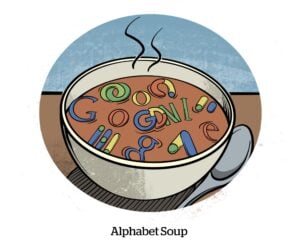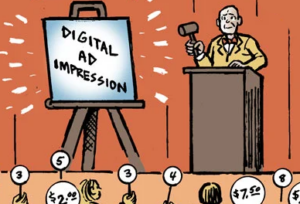Programmatic media buyers care about serving the needs of their advertiser clients. But there’s no reason they can’t also help publishers – especially diverse publishers – at the same time.
Consider the ad tech tax.
In the past, Sandy Rubinstein, CEO of woman- and minority-owned digital marketing agency DXagency, had assumed that the majority of an ad dollar would go to the publisher.
If an advertiser bought ads at a $10 CPM, the publisher would earn around 70%, right? But, in fact, they were earning just a fraction of that amount.
“I never realized how many hands are in the cookie jar,” Rubinstein told AdExchanger. “Now I understand why people can’t sustain their operations!”
And so DXagency decided to launch its own supply-side platform, which it’s calling DXKulture.
The platform, announced on Wednesday, is designed to be easily usable by brand marketers who have little to no ad tech experience. It’ll start out as a managed service, with self-service functionality available at the start next year.
Targeting diverse audiences
Clients increasingly want to reach extremely niche audiences, Rubinstein said.
But targeting diverse audiences is often difficult, because there aren’t enough publishers that can address these desired groups at scale.
DXKulture provides access to curated lists of highly targeted, DEI-focused audiences, as well as sources of inventory from diverse owned-and-operated publishers.
But the DXKulture platform was really built to help those publishers earn more money from their impressions, Rubinstein said.
DXKulture has integrations with several data providers, including LiveRamp, and uses first-party data from its clients, curating it all into packaged categories for private marketplace deals.
Although the platform is capable of reaching “hyper targeted” audiences, as Rubinstein calls them, the company’s definition of DEI is rather broad, containing categories beyond visual diversity (i.e., age, race and gender) to include religion and veteran status.
Investing in ad tech
While DXKulture’s platform is proprietary, it, like other SSPs, also relies on software providers, such as BidSwitch, to manage its billions of OpenRTB bid requests.
BidSwitch serves as a vendor for Reset Digital, too, which is another DEI-focused supply-side platform, and was a partner to Colossus, an SSP recently accused of mismatching user IDs to resemble higher-demand audiences.
DXagency is treading carefully into ad tech.
“That has been at the forefront of our conversations internally,” Rubinstein said, “making sure that we do not have any kind of fraudulent traffic, and [are] constantly checking our inventory list to make sure that it’s authentic.”
Looking ahead, DXagency already has big plans for its new ad tech arm. It’s staffing DXKulture with engineers from all different backgrounds and working on new products for different advertising channels, including audio, digital and out-of-home.
The next priority is to create better targeting and measurement tools for CTV and FAST channels, which isn’t surprising given the agency’s connections to the entertainment industry. Its clients include Viacom, National Geographic and Univision. (Rubinstein herself once served as the VP of marketing for several Nickelodeon brands.)
Additionally, the company is also developing a 501c3 nonprofit foundation aimed at funding financial grants to small publications and businesses targeting underrepresented communities.
“Not only do we want to get more money in the hands of publishers,” said Rubinstein, “but how do we help sustain [them] until we can get them enough ad traffic?”














